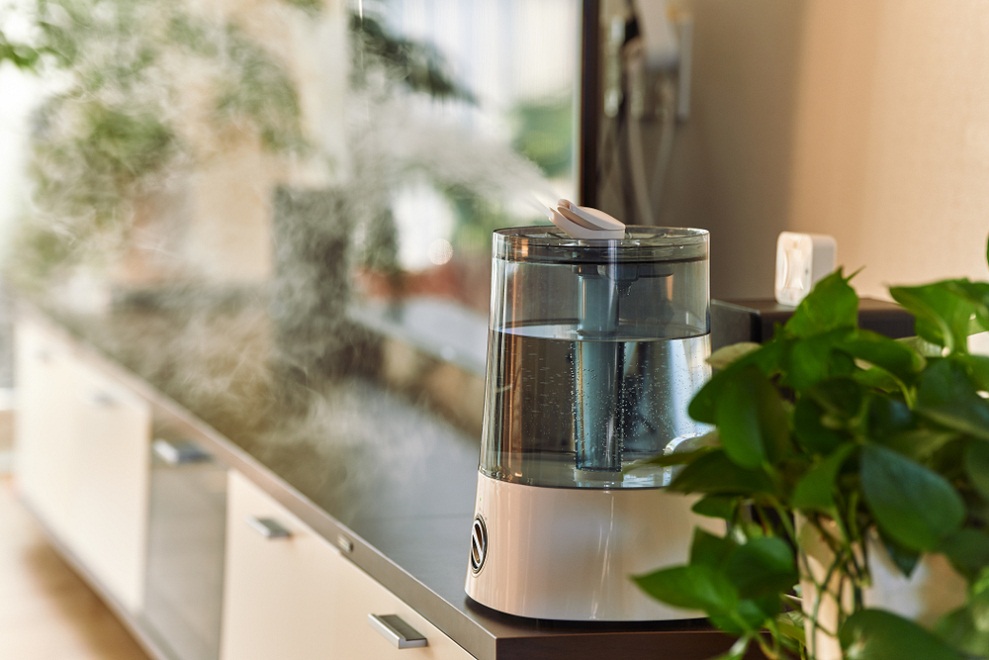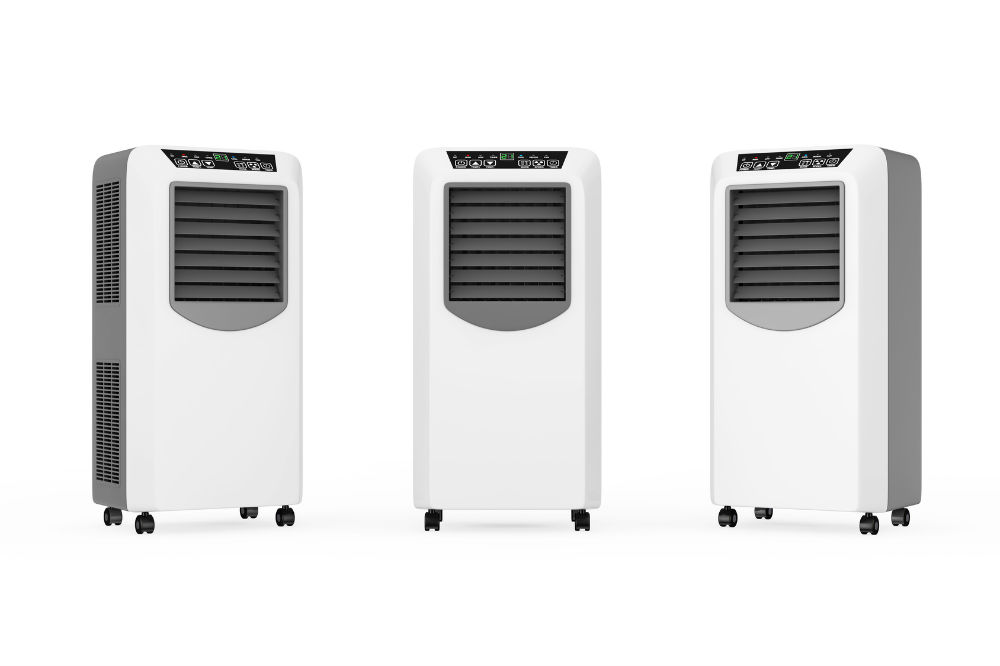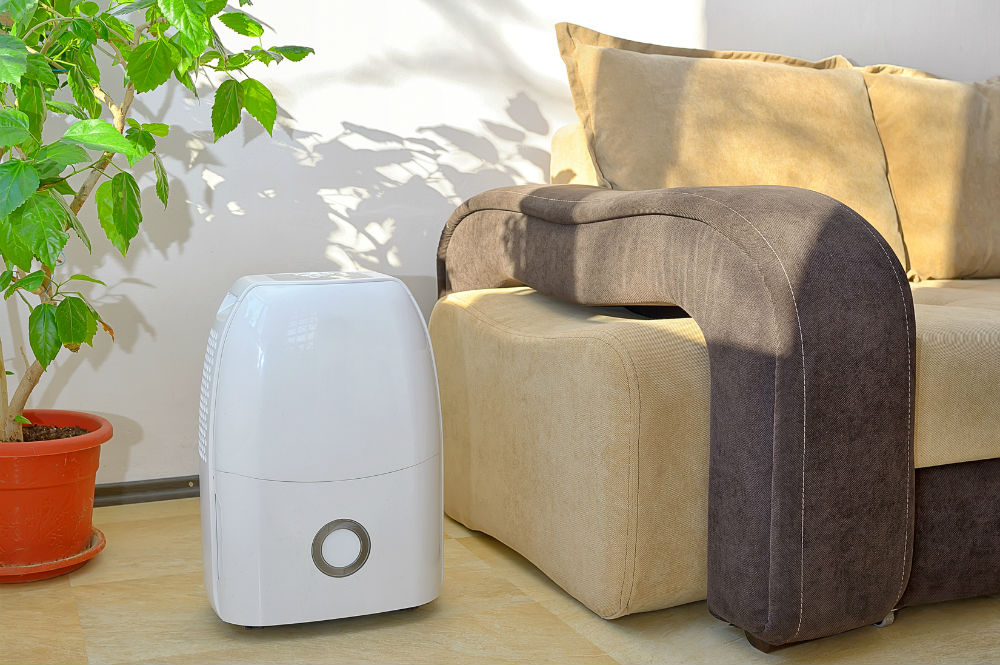Dry winter air can cause a host of problems. Your skin begins to crack, and your lips become dry, and your noses get stuffy. The indoor air quality can worsen these problems in your home.
Using a humidifier inside your home can avoid this problem. A humidifier will increase the humidity in your home to a comfortable level.
There are some drawbacks to using a humidifier. When used incorrectly, a humidifier can lead to higher maintenance costs and reduce the quality of your home’s air.
To use your humidifier correctly, the first thing you’ll need to know is what type of water to use in your humidifier.
Use Distilled Water For Your Humidifier
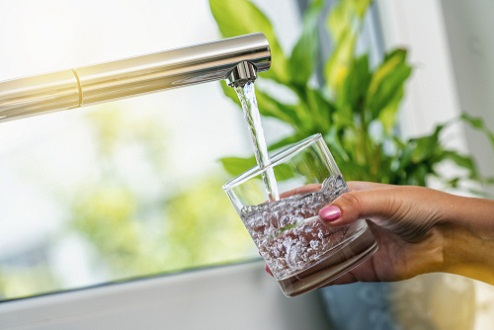
Distilled water is the best type of water to use in a humidifier. It has undergone treatment to remove bacteria and minerals that could damage your humidifier.
Distilled water is made by boiling water. As the water evaporates into steam, it leaves behind dissolved minerals and other particles. The steam is then cooled, condenses again into the water, and is finally collected. The condensate collected is distilled water.
A few reasons why distilled water is preferable in your humidifier are:
Use distilled water to keep your humidifier clean. Distilled water doesn’t contain dissolved solids. Tap water contains minerals such as calcium, magnesium, and sodium that can clog your humidifier.
Use distilled water to prevent mold growth. Distilled water is less likely to contain mold spores. Using distilled water reduces the risk of mold growth in the humidifier’s tank.
Distilled water can improve the air quality of your home. Distilled water removes the white “humidifier dust” which humidifiers make. Humidifier dust comes from dissolved minerals in the water that you use in the humidifier. Since distilled water has been treated to remove those minerals, it will eliminate the presence of humidifier dust in your home.
Why Is It Not Recommended To Use Tap Water In A Humidifier?
Tap water can cause damage to your humidifier because it contains dissolved minerals and solids. Using tap water will produce crusty scale deposits to form on the interior of your humidifier.
As if mineral buildups weren’t enough, bacteria and mold thrive in harsh environments. Scale buildups are key to the growth of microorganisms.
If mineral buildups weren’t severe enough, mold and bacteria would thrive in scaly environments. Scale buildups will kickstart the growth of microorganisms.
It is essential clean your humidifier often. Also, clean your humidifier’s filters often and remove any mineral buildups.
If you want to use tap water for your humidifier, a demineralization cartridge is an option. A demineralization cartridge can remove minerals from your tap water and keep your humidifier clean and your home clear of white dust.
Does Bottled Water Make A Good Choice For Humidifiers?
For the same reasons as with tap water, bottled water is not a good choice in a humidifier. Although bottled water is filtered to remove any particles, it still contains dissolved minerals.
Many bottled water companies claim their water is from a natural spring, and it is entirely pure. However, this water is not always pure. Water from natural sources can contain contaminants.
Don’t let this worry you. Bottled water is fine for a short time if you don’t have any other option. If you use your humidifier for only a few days, you won’t notice any effects immediately.
Use bottled water for your humidifier. Switch to distilled water as soon and as possible. If you don’t, your humidifier can get scale build up.
Is It Possible To Use Filtered Water In Humidifiers?
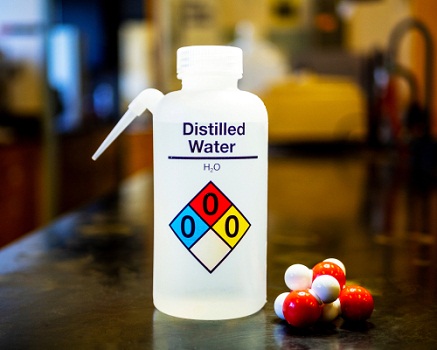
Filtered water is not recommended for humidifiers as it cannot remove all dissolved minerals.
Although a water filter is a good step in the right direction, it cannot completely treat tap water to use in a humidifier. Water filters are not effective in removing microorganisms like viruses.
Is It Possible to Use Boiled Water In Humidifiers?
It is not recommended to use boiled water in your humidifier. Boiling water can kill viruses and bacteria, but it won’t destroy dissolved minerals.
Boiling water can increase the water’s mineral content. The mineral content of boiling water increases as steam evaporates from it.
Even though distilled water is made from boiling water, distilled water, and boiled water are two completely different things. Distilled water is made from collecting the steam vapor from boiled water. Boiled water is not made from steam vapor. Instead, it just heated and contained amongst itself.
Boiling water has a lower chance of mold growth than regular tap water. Boiling water offsets mold spores so that you will have fewer problems with slime and mold.
If you choose to use boiled water in your humidifier, make sure that it cools down before you use it. Adding boiling water to a humidifier will damage it. After boiling water, let it cool to room temperature before putting it in your humidifier.
Is it better to use cold or hot water in a humidifier
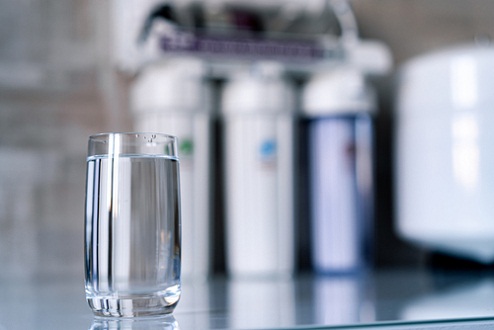
The short answer is: neither! It is not a good idea to use too much hot or cold water in your humidifier. For the following reasons, it is almost always best to use room temperature water:
Hot water is more likely to have more minerals than regular water. Because solids dissolve in hot water, this is why you might see more minerals. Hot water will build up in your pipes as it flows through them.
Hot water can cause dissolved minerals to build up in your humidifier, more than if you use room temperature tap water.
Additionally, using excessively hot water can decrease the lifespan of your humidifier. As the hot water flows through your humidifier, it heats the mechanical and electrical components. This can cause increased wear and possible damage.
If mineral buildup and decreased lifespan are not enough, bacteria and mold growth will be a problem. Your humidifier will provide a warm environment for organic lifeforms.
Your humidifier will work harder to humidify a space if you use warm-mist or steam humidifiers. These humidifiers will be less effective because they require heat to function correctly.
In some cases, hot water may not be necessary. Make sure you read the manual that came with your humidifier. Some humidifiers recommend hot water to increase evaporation.
Hot water is acceptable in this instance. However, keep an eye out for mold and mineral buildups, and change your filter often!
I’m a degreed ME (mechanical engineer) who is passionate about machines of all kinds. I created MachineWonders.com as a way to connect with others who love machines like me – or need help choosing one for their needs, application, or situation.

